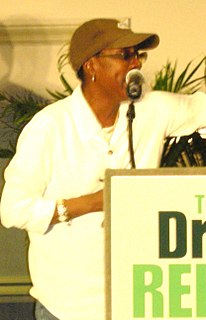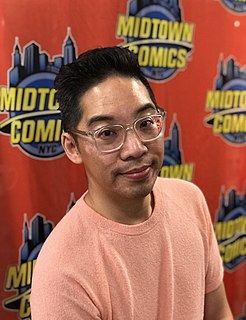A Quote by Afeni Shakur
I know that my son was an honest person and an honest artist, and what he gave from himself through his art was the depth of his humanity.
Related Quotes
Nothing like one honest look, one honest thought of Christ upon His cross. That tells us how much He has been through, how much He endured, how much He conquered, how much God loved us, who spared not His only begotten Son, but freely gave Him for us. Dare we doubt such a God? Dare we murmur against such a God?
What is it to be a gentleman? Is it to be honest, to be gentle, to be generous, to be brave, to be wise, and, possessing all these qualities, to exercise them in the most graceful outward manner? Ought a gentleman to be a loyal son, a true husband, an honest father? Ought his life to be decent, his bills to be paid, his taste to be high and elegant, his aims in life lofty and noble?
An entertainer is someone who pleases others, and an artist tries to please himself. An artist is on a journey: they don't know where they're going, what is going to happen, but they know they are not there yet, and there is some continuity and growth. I think of myself as an entertainer: I'm a performing entertainer, I'm a stand-up comic. But there's an artist at work here, too. One who interprets his world through his own filter.
And often he who has chosen the fate of the artist because he felt himself to be different soon realizes that he can maintain neither his art nor his difference unless he admits that he is like the others. The artist forges himself to the others, midway between the beauty he cannot do without and the community he cannot tear himself away from.
An artist is above all a human being, profoundly human to the core. If the artist can't feel everything that humanity feels, if the artist isn't capable of loving until he forgets himself and sacrifices himself if necessary, if he won't put down his magic brush and head the fight against the oppressor, then he isn't a great artist.
This morning arrives a letter from my ancient silver-mining comrade, Calvin H. Higbie, a man whom I have not seen nor had communication with for forty-four years. . . . [Footnote: Roughing It is dedicated to Higbie.] . . . I shall allow myself the privilege of copying his punctuation and his spelling, for to me they are a part of the man. He is as honest as the day is long. He is utterly simple-minded and straightforward, and his spelling and his punctuation are as simple and honest as he is himself. He makes no apology for them, and no apology is needed.





































